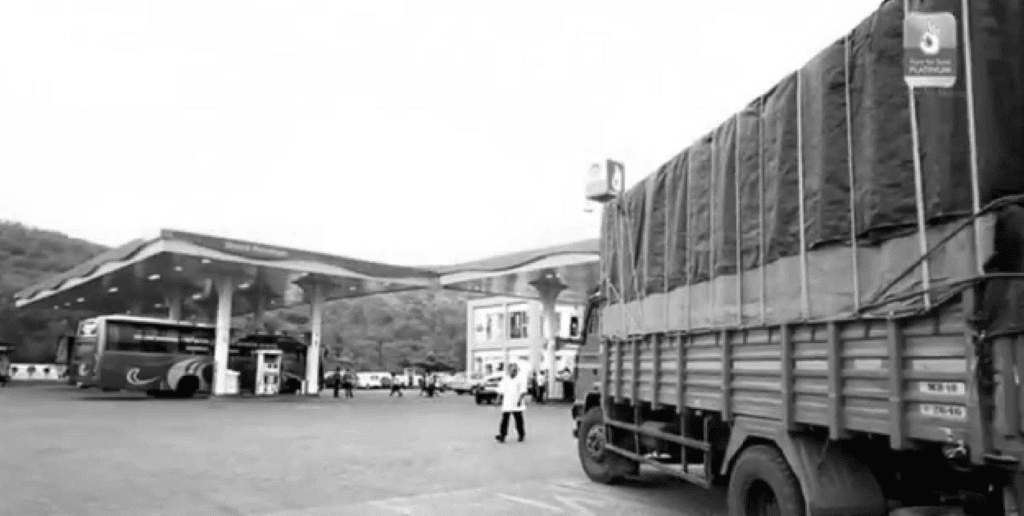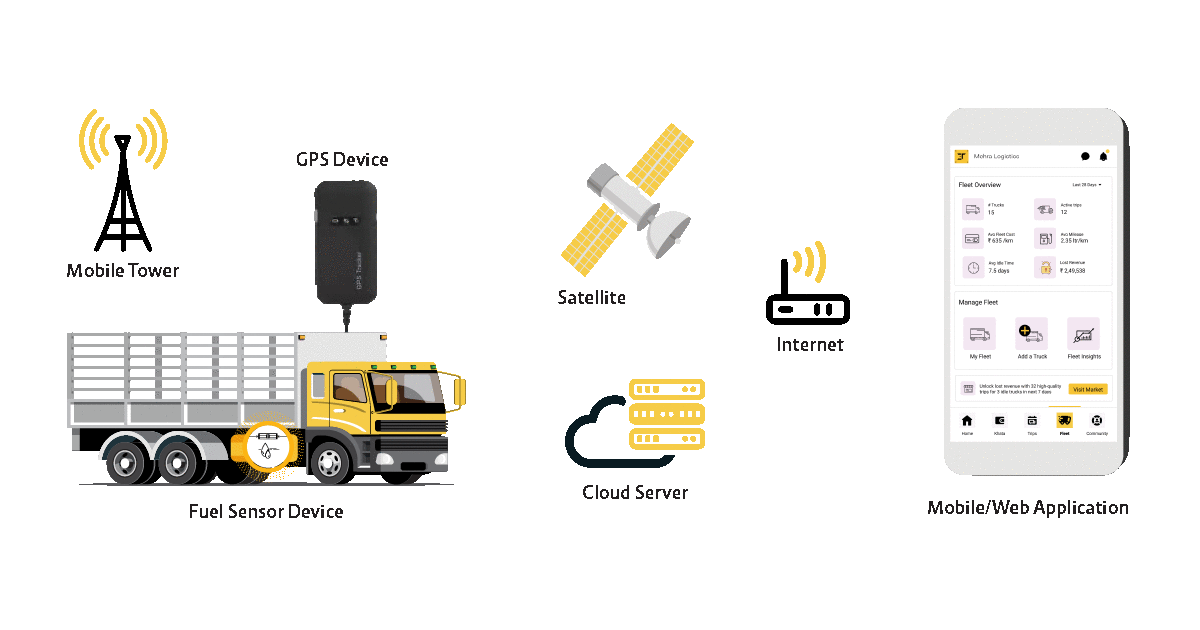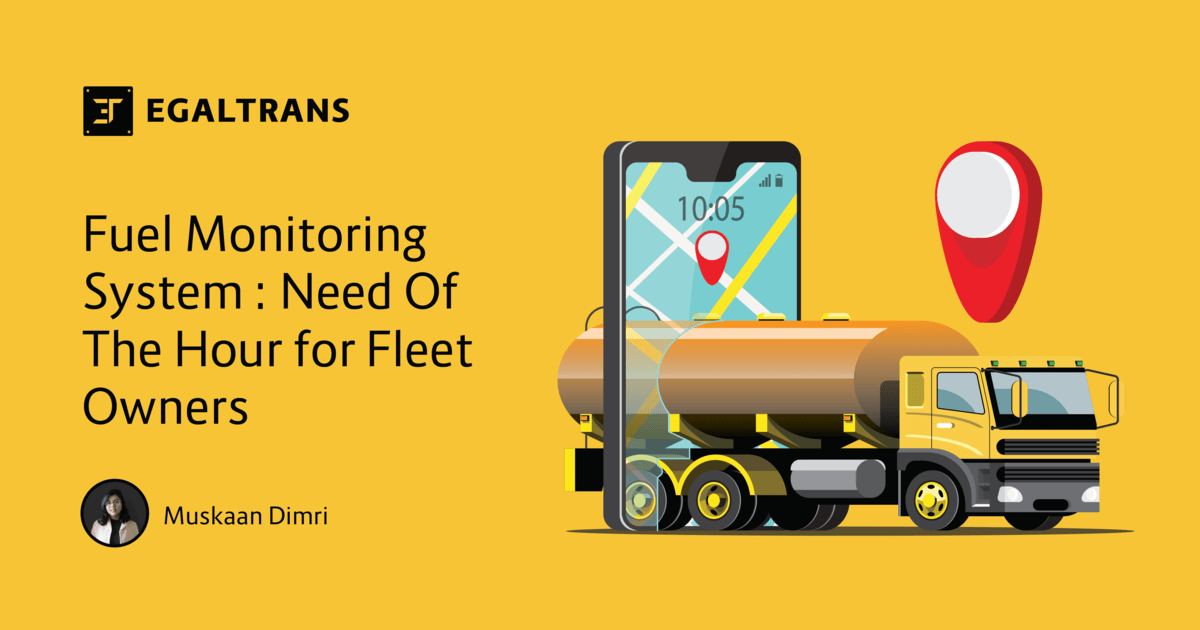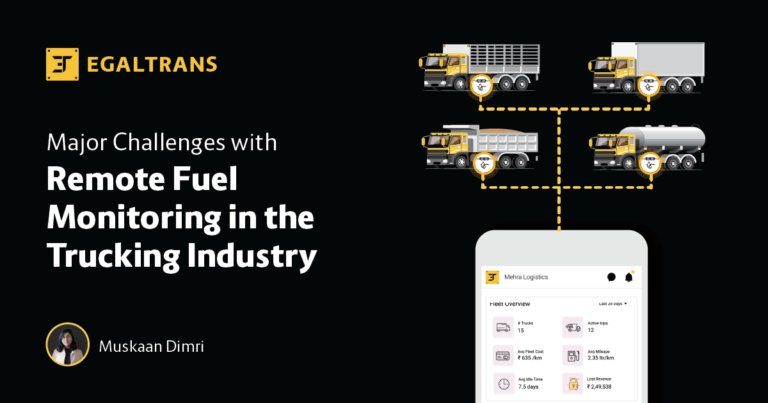Tracking fuel consumption is one of the major tasks for a fleet owner. Depending on old ways of measuring fuel efficiency of vehicles may not work very efficiently in today’s busy world. Asking your drivers about fuel level isn’t the best thing. Not that they won’t tell you the correct reading, manual ways of measuring fuel levels isn’t very accurate and hence lead to mistrust between drivers and fleet owners and managers. In addition, manual monitoring is not a scalable practice.
Major factors such as tracking sensors, logistics, software processing, fuel sensors etc. play an important role in fuel tracking systems and help the fleet managers to have a finer look at fuel cost, wastage and leaks.
What Is Fuel Monitoring And Why Is It Necessary?
With the ever rising prices of fuel it has become very essential to track fuel consumption in any vehicle. The cost associated with fuel expenditure constitutes 60% of the overall transportation budget through commercial vehicles which means it is a huge cost element for organizations. Effective fuel consumption monitoring is necessary for a profitable business. Why is it needed though? Let me explain.
-
Preventing fuel theft
Fuel theft is an inevitable phenomenon and very common these days, this causes heavy damages for the vehicle owners both financially and morally. Your drivers are continuously at risk of falling prey to thieves who can empty your fuel tank in a jiffy. GPS-based fuel monitoring helps to reduce such thefts by capturing the fuel level data via the sensor by data processing and sending instant alerts to fleet operators.
-
Tracking fuel expenditure
With the fuel consumption rate rising up to 18% in 2022, it has become necessary to monitor its usage. To reduce diesel wastages, a diesel fuel tracking system is very useful. The fuel levels are reported to fleet managers with the help of a sensor so that they can know when and where their drivers are using the fuel. The information can then be used to optimize the consumption of fuel.
-
Improve the efficiency of fuel tanks
Fuel tank monitoring helps to diagnose any fuel leaks or spills in the tanks. This is done with the help of fuel sensors which are placed in the tank and in any case of fuel spillage it notifies the control panel and the fleet owner to act upon it to avoid any further fuel loss. This data can also be provided to fleet maintenance staff, so they can fix them on their next routine check.
-
Maintain accurate records
Manual record keeping with the fuel receipts and invoices is a very difficult task. Most of the time will be spent on organizing the paperwork instead of improving the company’s efficiency and hence fuel monitoring solutions act as a lifesaver where the data is auto-recorded with the help of fuel monitoring sensors and GPS, thus saving time and energy.
-
Influencing Driver Behavior
As fuel monitoring devices give accurate data, this information can be used to influence truck driver’s behavior. The driver can be appreciated or given incentives for their fuel-saving methods. Drivers who do not meet expectations can be given training to improve the productivity of the fleet. This will promote a good work culture and will also help the drivers to believe that they are trusted.
-
Improves Fleet Efficiency
Digital fuel data helps in the efficient planning of fleet operations such as refueling of tanks. With the help of fuel monitoring systems, fleet managers will have real-time fuel level information which will notify them every time fuel level goes low. This makes refueling easier by finding the nearby gas stations at the right time.
-
Monitoring with GPS
Fuel tracking with the help of GPS enables fleet owners to handle any manipulation of fuel costs and also reduce operating costs. GPS software consists of all the information such as live tracking of the vehicle, fuel left in the tank, and any drastic drop in fuel due to a leak.

What does GPS-based Fuel Monitoring Consist of?
- Fuel Tracking System – Fuel sensors are essential for any GPS monitoring system and are used on stationary units, such as fuel tanks at gas stations, and moving vehicles: cars, trucks, locomotives, ships, etc. Types of sensors :
- Float fuel sensor
- Capacitive fuel sensor
- Ultrasonic sensor
- GPS Monitor – GPS tracking device is a location tracking and reporting device, installed on a vehicle and updates position information to the fleet management center.
- Fleet Administration Center – The administration center is a cloud-based software that stores and displays all the information obtained from the sensor and the GPS in a user-friendly manner.

Fuel Monitoring System and Your Contribution to Green Environment
Fuel monitoring keeps fleet-based businesses updated about fuel data in a truck and hence fuel system monitoring is not only the need of the hour but also an important environmental vise. This will help to reduce emissions from the vehicle by optimizing the route taken by the vehicle to reduce the on-road duration of the fleet. The integration of GPS tracker has also reduced manual labor thus decreasing the usage of paper for keeping records, thus saving big on cost, time and environment. Companies and fleet owners who have incorporated such environment-friendly measures in their fleets have reported an improvement in the sustainability of their business.
References:






